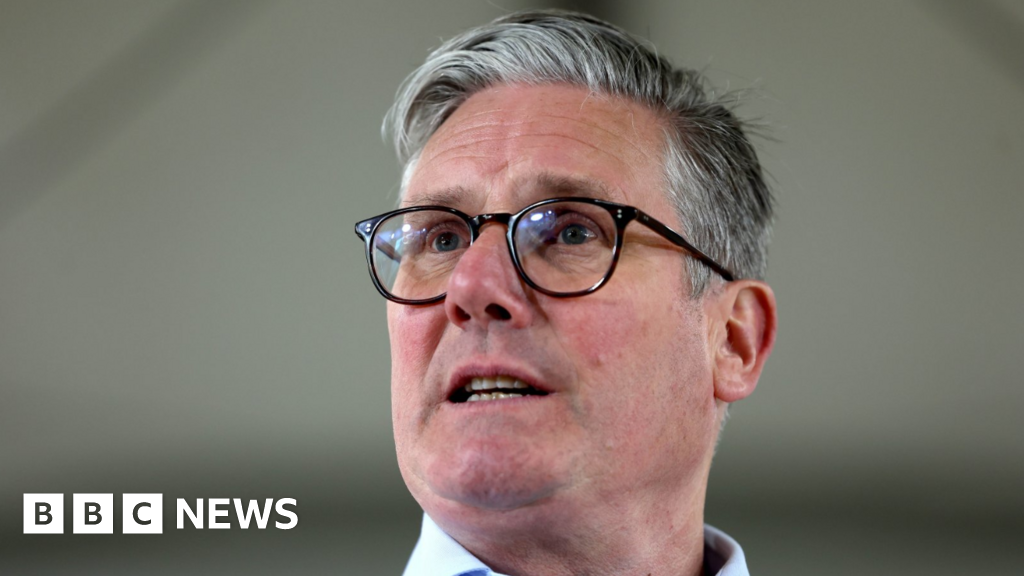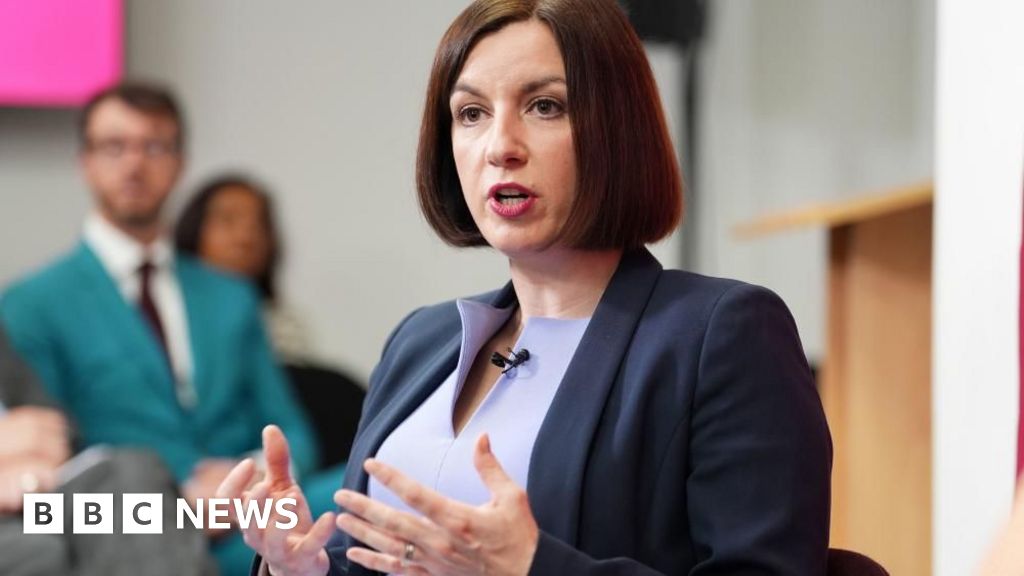ARTICLE AD BOX
Image source, Reuters
Image caption,Lord Frost confirmed his resignation to the PM on Saturday
Conservative MPs are split over the resignation of Brexit Minister Lord Frost, who left his post on Saturday.
The peer told Boris Johnson he had "concerns about the current direction of travel" of the government, including over Covid policy, urging the PM to avoid introducing "coercive measures".
Tory backbenchers who share his views have called his exit a "disaster".
But others in the party said it offered a chance to "press the reset button" in negotiations with the EU.
Lord Frost's departure comes days after the PM faced the largest rebellion of his premiership from his own backbenches over measures to limit the spread of the new Omicron variant.
But it also comes as concerns about the Covid variant continue to grow, with the UK recording days of record cases.
On Sunday 82,886 cases were recorded, and more than 12,000 new Omicron infections confirmed.
Scientific advisers have also warned England's hospital admissions could reach 3,000 a day without further restrictions.
Health Secretary Sajid Javid told the BBC's Andrew Marr programme that while he disagreed with his views, Lord Frost had "resigned out of principle... and we have to respect that".
But Labour's deputy leader, Angela Rayner, said the resignation suggested the government was "in total chaos right when the country faces an uncertain few weeks".
Ministers received a briefing on the latest Covid data on Saturday afternoon and a meeting of the Cobra emergency committee is expected to take place at 17:00 GMT.
Mr Javid warned there were "no guarantees" on whether further restrictions would be brought in.
'Enough is enough'
Tory MPs have been reacting to Lord Frost's departure in public and in private, with some of the 100 rebels who voted against the additional Covid measures that passed through the Commons earlier this week - including the use of Covid passports for some venues - saying the resignation should act as a warning to Mr Johnson.
Posting in a WhatsApp group, some said Lord Frost represented their views and him leaving was a "hammer blow" for Mr Johnson.
But when Culture Secretary Nadine Dorries came to the PM's defence - calling him a "hero" and asking for "a bit of loyalty" - they removed her from the group, with leading Brexiteer Steve Baker posting: "Enough is enough".
Tory MP Andrew Bridgen said the PM was "running out of time and out of friends to deliver on the promises and discipline of a true Conservative government".
He added: "Lord Frost has made it clear, 100 Conservative backbenchers have made it clear, but most importantly so did the people of North Shropshire."
'A great loss' - Watch Tory MP Pete Bone describe how Conservative colleagues reacted to Lord Frost's resignation
But fellow Tory Simon Hoare, who chairs the Commons Northern Ireland select committee, said the peer was "unsuited to the 'doing of politics'" and "never understood the need for personal rapport or the importance of trust".
Another Tory, Tobias Ellwood, told Times Radio Lord Frost's exit gave an opportunity to "press the reset button with the EU" as negotiations' continue over the Northern Ireland Protocol.
The protocol, agreed by the UK and EU in 2019, allows goods to cross the border between Northern Ireland and the Republic of Ireland without checks.
But it has been criticised by some businesses for making it more difficult to send goods to Northern Ireland from Great Britain.
Mr Ellwood said: "We're still not out of the woods with the Northern Ireland Protocol and we have some rather larger decisions and challenges, which actually unite both the EU, Europe and Britain.
"As much as I think this is going to be seen as a hit for the government, [Lord Frost] was a critical character that's been with Boris Johnson from the very start when it comes to Brexit, this is a chance for us to actually... sort of move forward on our relationship with the EU."
The view from Brussels
It's easy for analysts or journalists to dial-an-EU diplomat following David Frost's resignation as Brexit minister and hear them say something "not very complimentary" (if we're being polite).
Lord Frost's "hardball" manner was not appreciated in Brussels, but it was recognised as a negotiating tactic.
However, it would be a mistake to believe his departure will have a massive impact on post-Brexit relations.
Mistrust in the UK government will likely remain, long after Lord Frost leaves.
Why? Because key EU leaders, like Germany's Angela Merkel (and her successor Olaf Scholz), France's Emmanuel Macron and the Netherlands' Mark Rutte, say they believe successive UK prime ministers - namely David Cameron, Theresa May and Boris Johnson - were dishonest with them.
The oft-heard Brussels view is that UK governments tried to "play the EU like fools" as of setting the Brexit referendum date, with prime ministers speaking to the EU about Brexit in a more collegiate manner, then becoming far more hard-line when addressing the UK domestic audience - in particular, their own Conservative Party.
As of now it depends on the decisions by Boris Johnson, and the PM that eventually follows him (whenever that may be), rather than Lord Frost's departure, whether cross-Channel relations can improve or deteriorate.
DUP leader Sir Jeffrey Donaldson, who has been a long standing critic of the agreement, said Lord Frost's resignation raised questions about the UK's approach to the Northern Ireland Protocol.
He said Mr Johnson "must now urgently decide which is more important - the protocol or the stability of the political institutions".
Northern Ireland's deputy first minister, Sinn Fein's Michelle O'Neill, said momentum was needed in negotiations to make the protocol work better.
"The North will not be collateral damage in the Tory chaos," she added.
'Learn to live with Covid'
Lord Frost acted as the chief Brexit negotiator for the UK in 2019 in the final days of hammering out a deal, and continued talks with the EU on a trade agreement.
By March 2021, he had become a member of the House of Lords and a serving minister in Mr Johnson's cabinet.
But his recent focus has been on disagreements over the Northern Ireland Protocol.
In his resignation, Lord Frost said the PM had been "an outstanding leader" and that "Brexit is now secure".
But he raised his concerns over the government's handling of the virus, saying the country needed to "learn to live with Covid".
Katie Perrior, who worked as an advisor to Theresa May in No 10, said the anger aimed at Mr Johnson from his own MPs would leave the former PM "laughing her head off" as she had "faced this kind of problem in the past with different wings of the Conservative Party".
She told BBC Radio 4's The World This Weekend that Mr Johnson "needs to steady the ship" and "assert authority quickly" to unite the party.

 3 years ago
36
3 years ago
36








 English (US) ·
English (US) ·